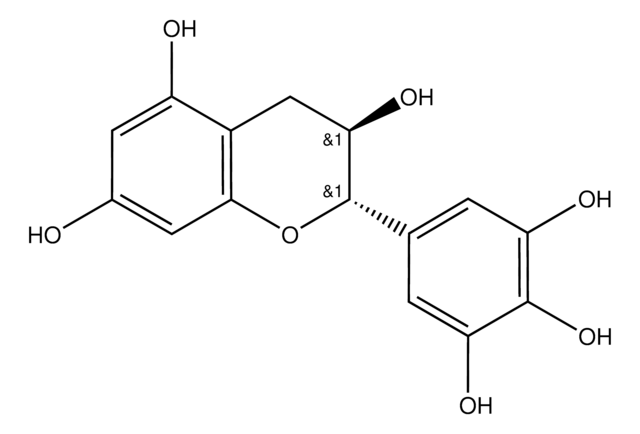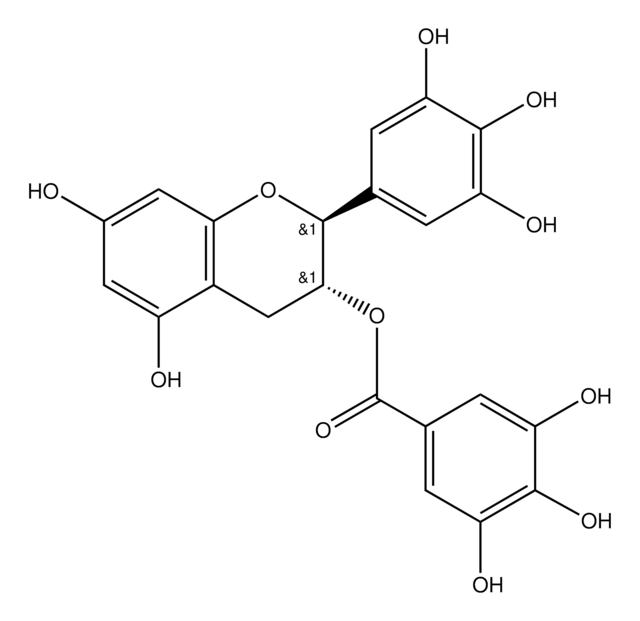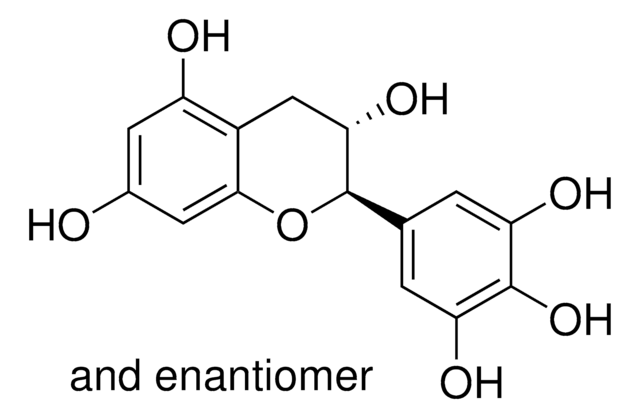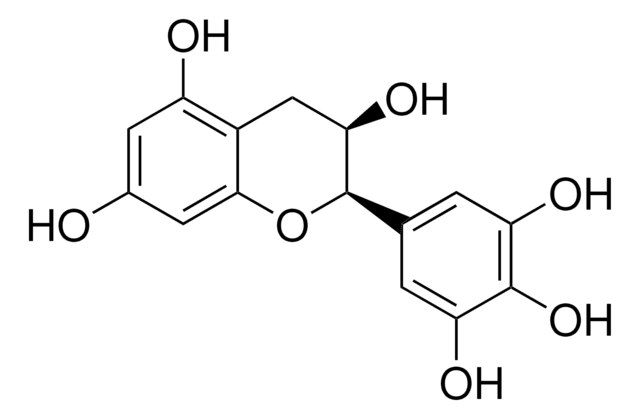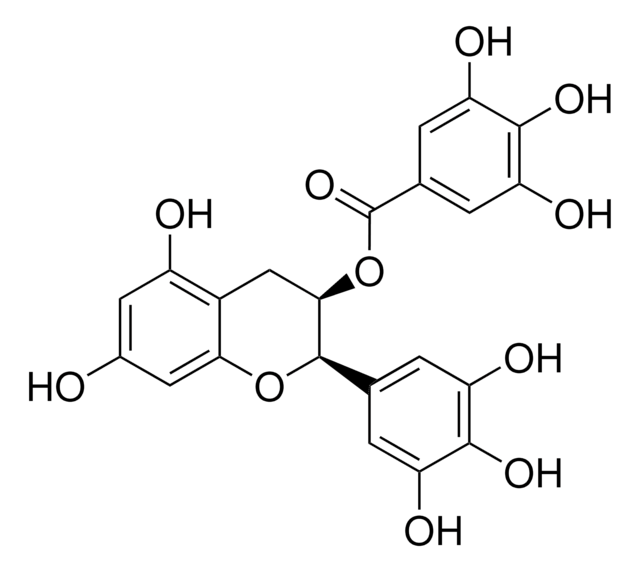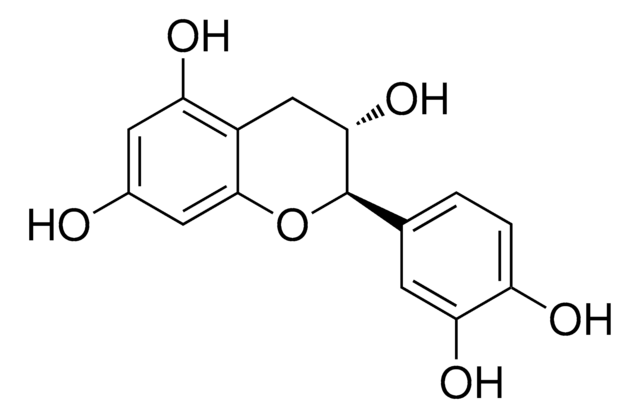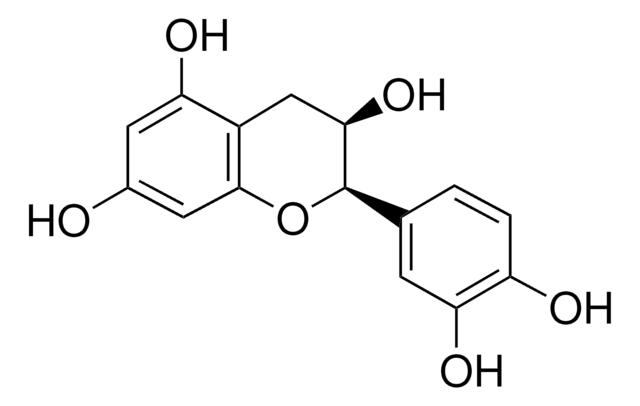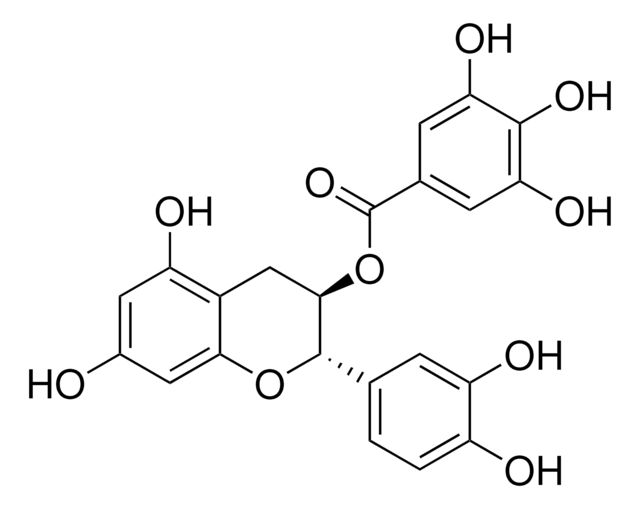추천 제품
Quality Level
분석
≥98% (HPLC)
solubility
H2O: 5 mg/mL (heat 2-10 min at 105C)
alcohol: soluble
응용 분야
metabolomics
vitamins, nutraceuticals, and natural products
저장 온도
2-8°C
SMILES string
O[C@@H]1Cc2c(O)cc(O)cc2O[C@H]1c3cc(O)c(O)c(O)c3
InChI
1S/C15H14O7/c16-7-3-9(17)8-5-12(20)15(22-13(8)4-7)6-1-10(18)14(21)11(19)2-6/h1-4,12,15-21H,5H2/t12-,15+/m1/s1
InChI key
XMOCLSLCDHWDHP-DOMZBBRYSA-N
유사한 제품을 찾으십니까? 방문 제품 비교 안내
일반 설명
애플리케이션
- for the identification of phenolic compounds present in Pineapple (Ananas comosus) using high-performance liquid chromatography (HPLC)
- to evaluate the catechin profiles from Camellia sinensis green tea, white tea, and flower sample by high-performance liquid chromatography/photodiode array detection (RP-HPLC/PDAD) analysis
- as a reference standard for the flavan-3-ols profiling muscadine grape hybrid varieties using high-performance liquid chromatography-quadrupole, time-of-flight, tandem mass spectrometry (HPLC-qTOF-MS/MS) analysis
생화학적/생리학적 작용
기타 정보
신호어
Warning
유해 및 위험 성명서
Hazard Classifications
Eye Irrit. 2 - Skin Irrit. 2 - STOT SE 3
표적 기관
Respiratory system
Storage Class Code
11 - Combustible Solids
WGK
WGK 3
Flash Point (°F)
Not applicable
Flash Point (°C)
Not applicable
개인 보호 장비
dust mask type N95 (US), Eyeshields, Gloves
시험 성적서(COA)
제품의 로트/배치 번호를 입력하여 시험 성적서(COA)을 검색하십시오. 로트 및 배치 번호는 제품 라벨에 있는 ‘로트’ 또는 ‘배치’라는 용어 뒤에서 찾을 수 있습니다.
이미 열람한 고객
문서
Antioxidants protect biological systems from oxidative damage produced by oxygen-containing free radicals and from redoxactive transition metal ions such as iron, copper, and cadmium.
관련 콘텐츠
DISCOVER Bioactive Small Molecules for Nitric Oxide & Cell Stress Research
자사의 과학자팀은 생명 과학, 재료 과학, 화학 합성, 크로마토그래피, 분석 및 기타 많은 영역을 포함한 모든 과학 분야에 경험이 있습니다..
고객지원팀으로 연락바랍니다.